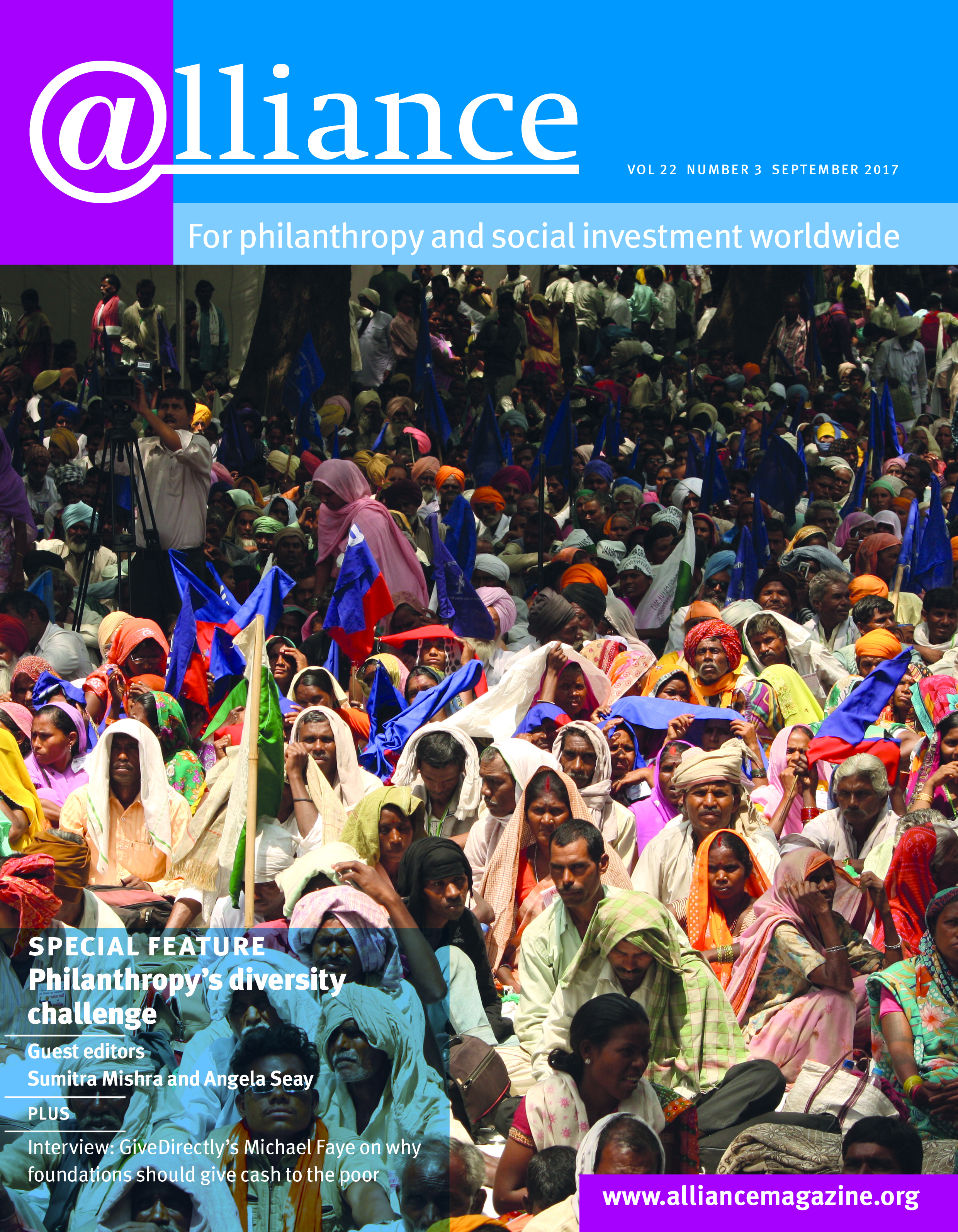Despite mandatory requirements for disability employment, employment for people with disability in India remains abysmally low according to the National Centre for the Promotion of Employment of Disabled Persons. Of those who are employed, 70 per cent are physically challenged; less than 1 per cent have cognitive impairments. What’s more, walking the talk on disability employment appears to be as difficult for philanthropic organizations in India as for any Indian company, government office or non-profit organization, even for those who are working in the area.
I conducted a survey among a random sample of philanthropic organizations in India, all of whom had disability as a thrust area for their giving.
These included corporates, the corporate social responsibility (CSR) departments of Public Sector Undertakings (PSUs)[1] and grantmaking foundations. I asked all of them the same questions:
- Do you have anyone with a disability on your board?
- Do you have anyone with a disability in your senior management?
- What percentage of your staff are people with a disability?
- Do you have a proactive hiring policy for people with a disability?
None had any person with disability on their board. Only one company had an individual with a disability in senior management.
No other company did, nor did any PSU or grantmaking foundation.
Regarding the percentage of staff with a disability, most respondents were vague, claiming ‘a few’ disabled employees on their rolls. Only one PSU gave a specific proportion – 2.35 per cent of its total employment force, which is still short of the legally-mandated four per cent with the new Disability Rights Bill.
None of the respondents had a proactive hiring policy for people with disability.
Yet, far from this data making me feel discouraged about the state of affairs among philanthropists in India, the experience has simply helped me to realize how important it is for all of us to move forward.
As I said in my correspondence with the individuals I wrote to: ‘Believe me, I am not trying to catch you out! Simply thinking about these questions is a useful exercise. It hadn’t even occurred to me that we should have people with disabilities on our board until I started working on this essay and we do nothing BUT disability. We are now addressing it in all new hires as well as in our next board elections.’
Change happens slowly and just as ‘the eye doesn’t see what the mind doesn’t know’, boards and senior managements are not magically transformed just because of the mandates they exist to fulfil.
However well-meaning we might be, we take our superiority so much for granted it seldom occurs to us to question ourselves.
In the not so distant past, the ‘race question’ and the ‘problem of gender’ would be ponderously debated by white, middle-aged men. Now, issues of disability, exclusion and inequity are being addressed by able-bodied individuals.
However well-meaning we might be, we take our superiority so much for granted it seldom occurs to us to question ourselves. So the change, if it is to begin at all, begins with opening our eyes to our own limitations and blind spots.
In the world of philanthropy, that often comes down to non-profits challenging their own donors to think more creatively, openly and – dare I say it? – humbly, about their decision-making process.
But that can only happen if we first apply the same rigour to our own thinking. In the non-profits I surveyed, only a handful had people with disabilities in senior positions or on the board, my own included.
In the non-profits I surveyed, only a handful had people with disabilities in senior positions or on the board, my own included.
Only when we are ready to include the very people whose rights and inclusion we claim to be working for will we be in a position to push our donors to a more truly equitable and just selection process for their boards and senior management teams.
We know from our own experience that it’s not easy to work closely with people with disabilities as colleagues and equals. At times, they seem to speak a different language. That’s because they do. Their worlds have different signposts; their maps are configured using different parameters and different milestones.
That is precisely the point. We cannot plan for their inclusion without including them.
Jo Chopra is executive director of the Latika Roy Foundation. Email: jo@latikaroy.org
Footnotes
- ^ Public Sector Undertakings: state-owned enterprises, in which the government (either central, state or territorial) owns the majority of the stock.








Comments (0)